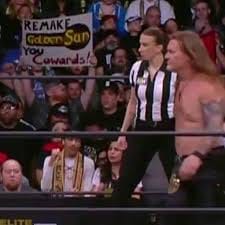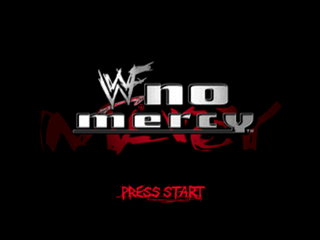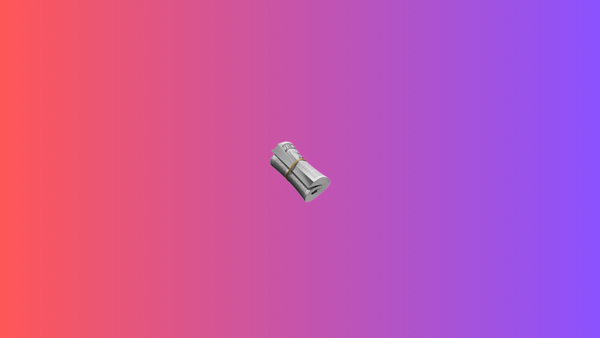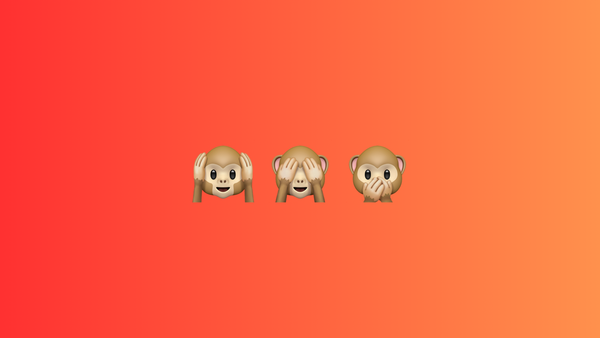How wrestling storylines shape games media stories
I think, to some degree, gaming has a wrestling problem. It’s a facetious take that I don’t really mean, but, as someone who has followed the industry (and the people who cover it) for more than 15 years, you start to notice things.
Before I get too deep into this, I do want to mention right off the bat that I’m not a wrestling person. Never have been. However, I watch and listen to enough folks in the games media to know my way around kayfabe, heel turns, shoots, and works. And I enjoy listening to people talk about “the business, brother.” That’s part of what I love about games media in general: people are in this business because they love the product and that love is infectious. So, for as pointed as this blog is, just know, if you’re a wrestling fan, that’s cool. I still love you.
I’ve always found it a bit difficult fitting into gaming circles. No community is a monolith, but as a kid I never played the seminal Nintendo games, nor did my games-buying parents have the taste of someone who played games. My foray into video games started with a GameBoy and a hacked PS1 that came with WarHawk. My primary rotation of N64 games were NASCAR 98, Star Fox 64, and Star Wars: The Battle for Naboo. To this day, I've never escaped the Great Deku Tree, flown with Rogue Squadron, or fought Master Hand. I did, however, play WWF No Mercy with my two wrestling-loving neighbors. I mostly remember being confused by the controls and some guy covered in gold paint. They loved it though.
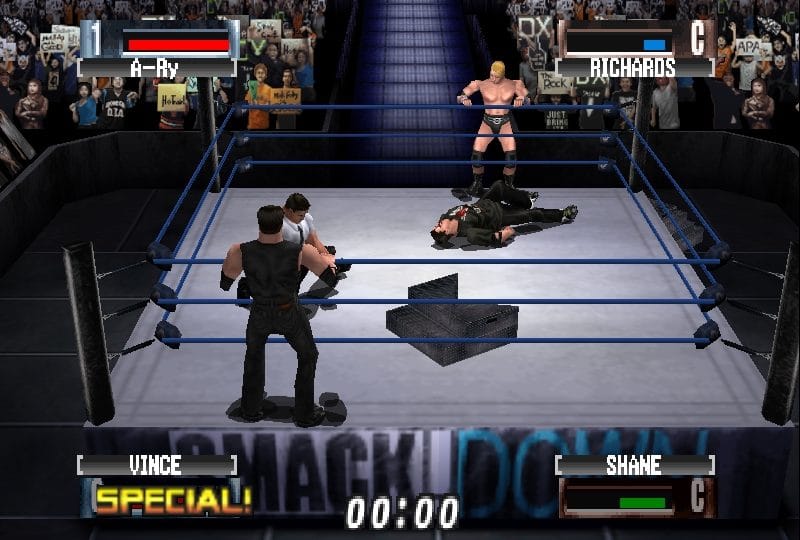
All of that to say, I came to gaming from an odd place. As I grew up, played more mainstream games, and started reading Game Informer, Official Xbox Magazine, and Official PlayStation Magazine, I started to learn about developers, publishers, and the main characters of gaming: Sakurai, Miyamoto, BioWare, and EA BIG, not to mention the mascots: Mario, Sonic, and Master Chief.
After graduating college—I played Tom Clacy’s EndWar while I watched my roommate play Skyrim (a game I own four copies of and never made it past Whiterun)—I ended up making my way to the tech industry. I played Shadow of War while watching Helvetica (yes, a documentary about a font) and found myself fawning over the chair designs in Dishonored more than the fatalities in Mortal Kombat. I worked with people who only wore black t-shirts and their arms were covered with tattoos. We watched Apple and Google keynotes like it was E3.
For as much as the broader gaming community contains multitudes, I realized—both in the people making games and those covering them—that my particular flavor of design-y self was not the representative group. In 2025, I don’t think my gaming origin is all that novel, especially when the majority of “gamers” don’t play the big releases anyways, instead building wooden skyscrapers as Sabrina Carpenter and avoiding a Goku with an assault rifle. I still feel outside the mainstream, but I suppose most of the people reading this do too.
Just as American politics tend to be reported like a sports game (my team vs your team, including the ludicrous merch), I think that games coverage is reported like wrestling. The long development cycles, leather jacket clad characters, and fanbase that tends to care more for product than production, all builds to these seasonal rumbles that crown new kings.
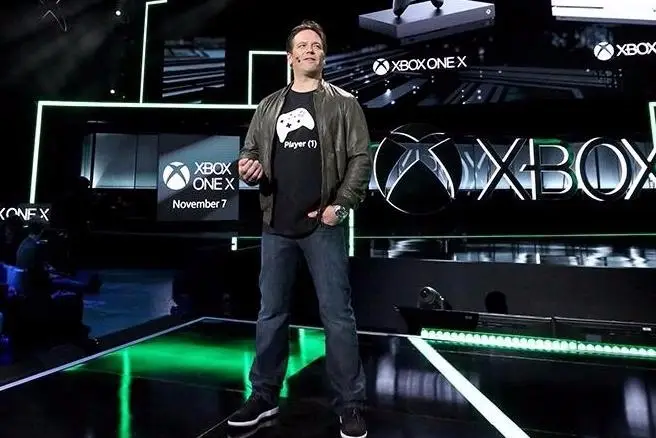
A lot of this is coming from the position of an amateur looking to get into the industry, but I think it’s clear to most people, even if they can’t put their finger on it.
Let’s take the obvious example: the “console wars.” The ongoing sniping from one company to another wasn’t the normal tit-for-tat feature fight you saw in tech at the time (the Mac and pc commercials or the always vocal “android had it first” crowd), instead the CEOs of games companies would cut promos. They’d put out print ads with Sonic dissing Nintendo, or Sony CEOs would pass a PS4 disc to each other to dunk on Microsoft. Steve Jobs would never.
You can see the wrestling influence in coverage as well, manifesting in long-running storylines. For almost three years, the Blizzard Activision acquisition was gaming’s main storyline, complete with court cases, main characters like Bobby Kotick, Phil Spencer, and Jim Ryan, and ruthless, public promos goading companies into action. Phil Spencer, not Microsoft, signed a deal with Nintendo. Jim Ryan, not Sony, was raising concerns about Call of Duty, not PlayStation. Gamers stand outside the ring, cheering on the bloodsport like it’s some kind of playground argument about if John Cena would beat up The Rock kind of craziness.
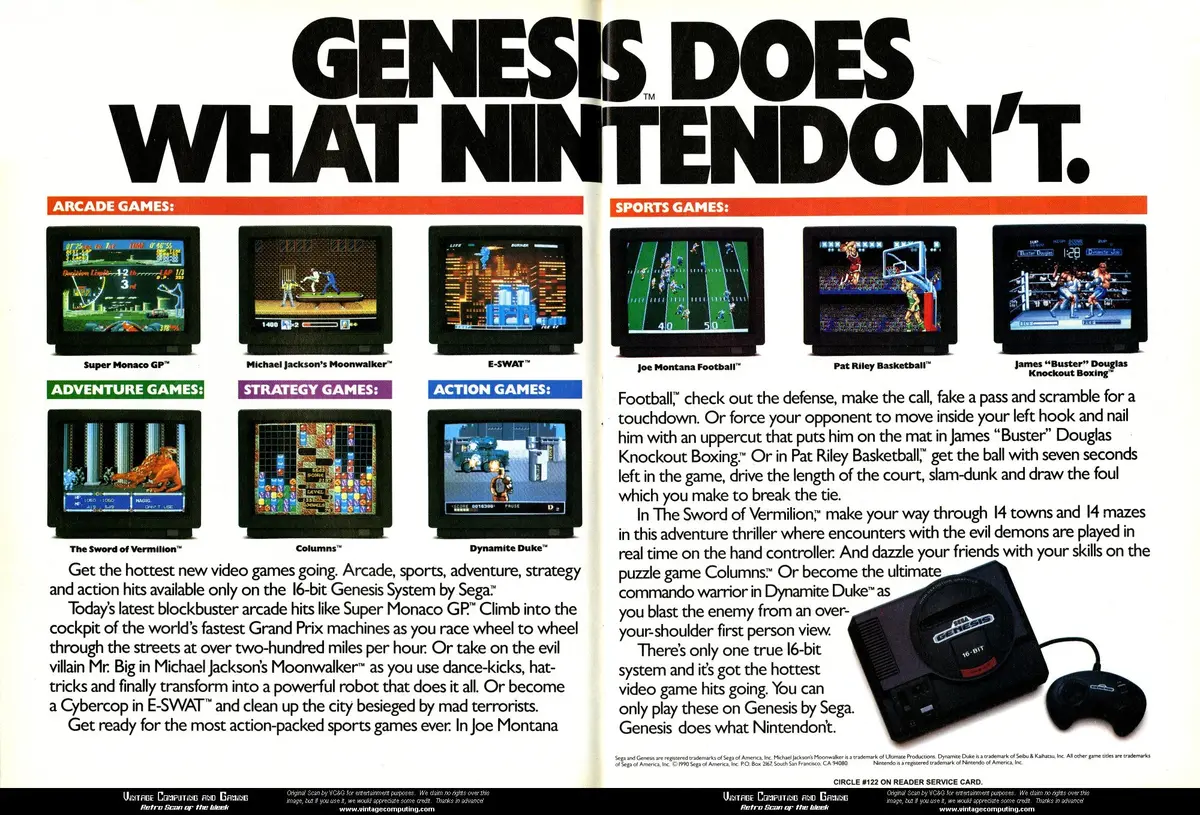
Just like wrestling, we all tacitly recognize none of that shit is real and that the only “storyline” is one of investor growth and corporate goals; the only heel turns are sexual assault coverups and crunch culture. These monolithic characters are just that: characters. Maybe these execs wear Hexen shirts to the office everyday, but as much as they love video games (or don’t) they’re protecting the business. We want to see Cody Rhodes on the stage, but it’s just a MacMahon in a gamer costume.
This ain’t to say games coverage is papering over all that awful stuff; I think larger movements towards unionization and focusing on workers’ rights in the media has taken the shine from some of these rockstars. But the impulse to tell these narratives like wrestling storylines lives on, both to stoke the media ecosystem with daily updates and posts like this one, lambasting that heel you love to hate.
I think there’s an important distinction between film and games too: we look at Christopher Nolan or Martin Scorsese as auteurs, geniuses with a camera. You can see some of that creeping into games too, look no further than television director Neil Druckmann or whatever it is Kojima does. But as the industry becomes more consolidated and we enter the console Cold War, it all just feels like fake posturing at the Saudi Arabian Wrestlemania.
It’s all heel turns from the mega-corporations as prices go up and morale, surprisingly, doesn’t improve. Even baby-face Nintendo turns too. I think all of this hubbub about Nintendo “not being weird enough anymore” is actually just Mario pulling a John Cena: looking out at the crowd they’ve entertained for decades and taking theirs.
So does gaming coverage have a wrestling problem? I mean, probably not. Live your life and love what you love, it’s bad out there so have fun where you can. It is just strange how much wrestling culture seems to be tied to gaming and the interesting ways that wrasslin’ pops up in gaming spheres.
